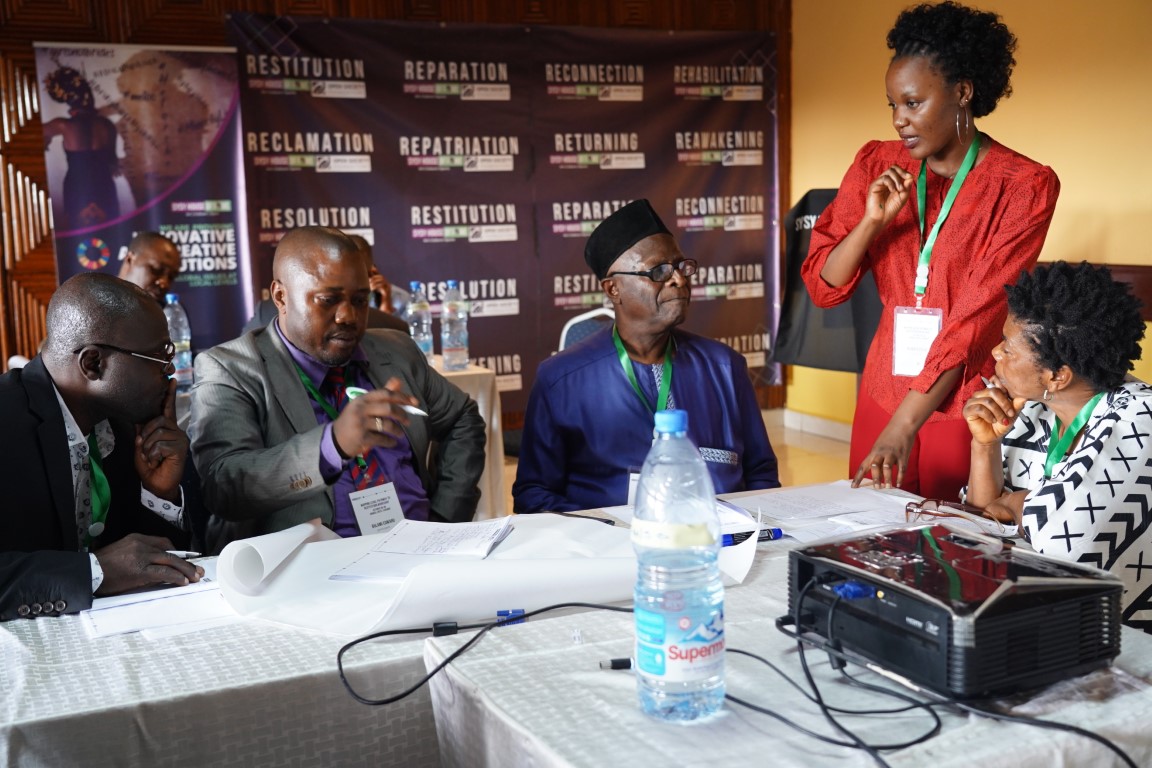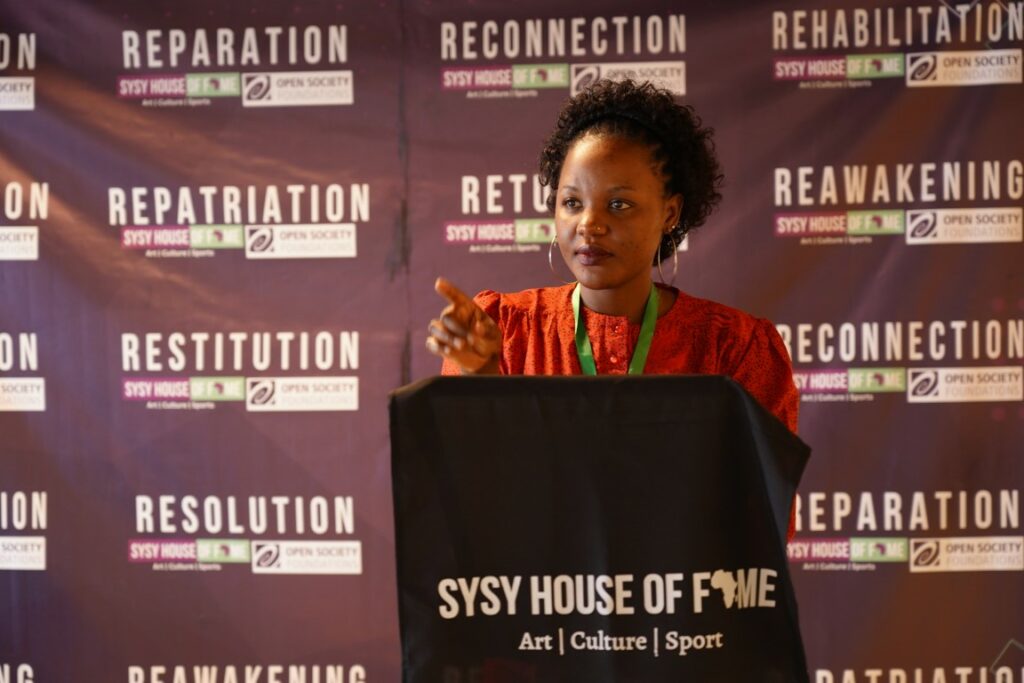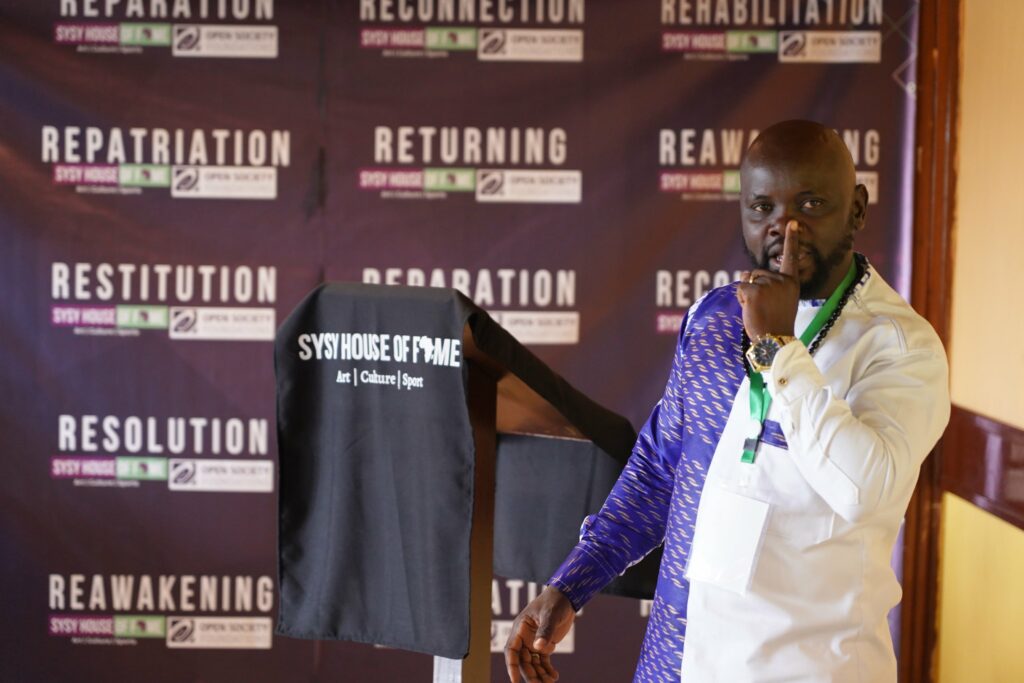As of now, (October 06, 2022), the critical question of return of “Objects” looted in colonial times is built on the foundation of good faith, and a moral standing. However, we cannot guarantee that institutions and individuals that be share the same moral and ethical values as the rest of the world that sees restitution as the right thing to do. The current tussle to restitute is proof that it is going to take more than good faith and moral values to ensure restitution – Legal instruments
The loot of cultural property is just one amongst many devastating repercussions of colonial invasion. Despite mounting pressure to address the colonial past, there is general reluctance to return the objects due growing fears over empty museums, among other arguments, if restitution becomes a legally binding claim. Although restitution is the moral thing to do, there are no legal instruments that makes restitution imperative without pitfalls.

The fact that there are little or no available legal frameworks supporting the human and cultural right of Restitution especially in colonial context is a problem. It is a huge issue for the victims of the atrocious and shameful era of colonialism who critically need to be supported with the relevant legal instruments that are crucial for restitution work such as activism, lobbying, influencing, and also for post restitution negotiations.
Funded by Open Society Foundations, we organized a two day workshop with 13 legal experts in Cameroon to brainstorm on legal frameworks that would support communities seeking restitution in Africa.
This workshop was held on the 7th and the 8th of October 2022 in Yaounde under the theme; Mapping A Legal Pathway To Restitution.
In attendance were also members of the Nso community who by the intensive campaign of Sysy House of Fame for the return of Ngonnso and other Royal Objects, happen to be the first restitution case Cameroon has ever handled in colonial context.
Conversations at the Legal Workshop spanned from the concept of restitution as a whole, to deliberations concerning the specific case of the return of Ngonnso.
In a series of brainstorming modules, participants were able to deliberate upon existing legal instruments that guide restitution, how communities can use these instruments, possible advocacy for new instruments and litigation and negotiations procedures for the final return of Ngonnso.
I am still hoping that humanity wakes up soonest to the understanding that what keeps Europe amazed at the wonders of creativity when people walk into museums, keeps a whole community awake at night restlessly hoping to find full essence of being.
Sylvie NJOBATI

Amongst the substantial output of the workshop were the drafting of a toolkit to support communities seeking restitution and an MoU to support the conversation between the people of Nso and the government of Cameroon for collaboration towards the safe return and rehabilitation of Ngonnso.
The desire and dedication to the topic of restitution was greatly felt when Prof Fanso Verkijika (age-80) said this at the end of the workshop – Day 2;
I went back home yesterday not feeling tired for the first time in years, because each moment of the workshop has been enriching and empowering.
We hope to see more institutions and communities realize that restitution is a legal obligation, a human right, a cultural right and that the conversation of restitution moves from an angle of dispute to one of dialogue, forgiveness and reparations.



